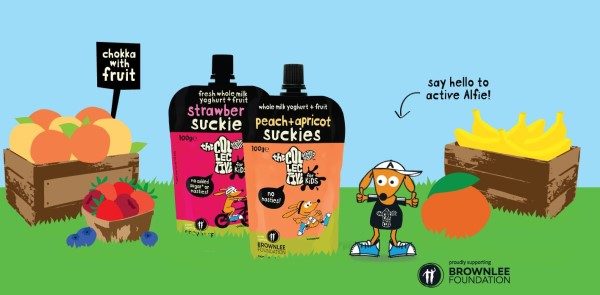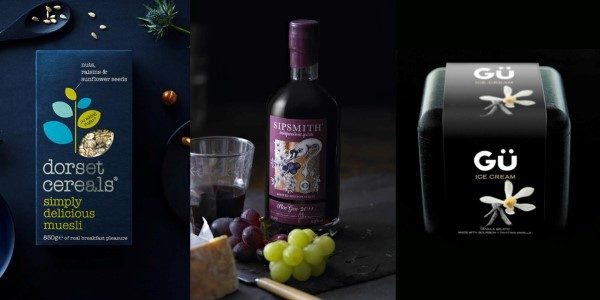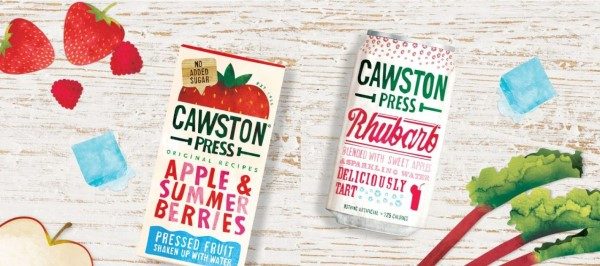We are curious creatures here at Piper and, as part of this curiosity, we love hearing and learning from inspiring leaders. This is part of the reason for holding regular events at our offices bringing together entrepreneurs growing challenger brands – a couple of weeks ago, we hosted 20 entrepreneurs at our annual food and drink Founders’ Collective.
We invite speakers that we think are doing something special and are representative of the debates that we regularly have at Piper: How do we place sustainability at the heart of our partner brands? How do we create strong team cultures? How do we grow brands that resonate emotionally with consumers? How do we ensure that we create value in our brands through focused international growth?
The morning began with Amelia Harvey, MD of international yoghurt brand The Collective, taking us through her remarkable journey in growing the brand to be the category disruptor it is today, a business that has an endless desire to challenge how things are done in a space dominated by the big boys.

It was inspiring to learn about how The Collective places sustainability and charity at the core of its brand values. When Amelia’s business partner sadly passed away from a sudden heart attack, it was natural for the business to pay for defribulators to be places in a dozen phone boxes around the country. On a larger scale, the brand supports the Brownlee Foundation in encouraging kids to lead more active lives, helping to organise three mini-triathlon events that reached almost 3,000 kids.
Without cynicism, giving back makes even more sense when it is tied in with the commercial goals. However, few leaders would have been brave enough to remove the plastic lid from their core product, especially as it led to a 10% dip in sales. Yet, for Amelia, this was fundamental to the long-term values of the business and something that consumers are increasingly vocal about – ‘our most successful Instagram post ever was when we announced that we had changed our lids from black to green to allow for them to picked by recycling machines’.
At Piper, we are obsessive about ensuring that our brands grow sustainably. We have found that looking after people and the environment makes complete commercial sense. In the last year, Propercorn has become a B Corp, Forthglade has changed the colour of its trays to allow for recycling, and Neom has invested in a new HQ that has the wellbeing of its staff at the heart.
Our second speaker, Perry Haydn Taylor, founder of leading branding agency Big Fish saw The Collective as representative of the psychology behind the ways in which brands engage emotionally with consumers.

For him, great brands make us pay a premium for their products – ‘brands create a placebo effect on price, blinding us to the real value of the product’. He spoke of brands codifying premiumess in their packaging – ‘I think packvertisment is far more powerful and better value for money than above the line advertising)’. He loves it when brands create a visceral user experience, although sometimes sacrificing functionality – ‘Marmite understand the power of nostalgia and premium packaging, it has kept selling its product in glass bottles, even though the squeezy versions are far easier to use.’
When designing packaging, Perry always asks his team to make sure that their rational brain doesn’t intervene with the creative one – ‘the rational part of your brain will always make you think that something is wrong or not possible. This is what we must fight against, the fear of making mistakes. If you don’t want to make any mistakes, don’t have any new ideas. It’s easy for idea infanticide to prevail. All ideas are born ugly and become better only as you allow them to live.’
Most importantly for him, the best brands that will stand the test of time have a strong internal team culture that is representative of the external brand values and that makes the business stronger. ‘Yvon Chouinard, founder of Patagonia, wrote in his book Let My People go Surfing: “Remember, work has to be fun. We value employees who live rich and rounded lives. We run a flexible workplace, and we have ever since we were a blacksmith shop that shut down whenever the waves were six feet, hot and glassy…A serious surfer doesn’t plan to go surfing next Tuesday at two o’clock. You go surfing when there are waves and the tide and wind are right.”
Employing people that fit with your culture and have a passion for your product is as important as their skillset. He gave the example of a grocery buyer – ‘can anyone explain to me why Tesco would hire a lactose intolerant buyer to head up the yoghurts buying team?’
Our final speaker, Mark Palmer, Chairman of Cawston Press and formerly Marketing Director of Pret and Green & Black’s, spoke about how it takes a long time to get a brand out of the blocks – ‘young entrepreneurs these days are impatient, they want to sell for £100m in a few years’. When scaling a business, his advice is to hire a finance person before you can afford one, not a marketing person as most people do. He also stressed the importance of not constantly switching brand and marketing managers – ‘it’s important to have consistency and the problem is that each new manager wants to redesign the packaging, which can be very disruptive to the brand vision’.

On his journey in growing Green & Blacks and Pret, he found speaking to customers essential – ‘talk to absolute fans, who are your brand advocates, and rejectors, who could be your potential customers but are not buying because of barriers that may be under your control. Don’t just speak to the middle ground in focus groups’. We couldn’t agree more!
His advice for going international is not do all international markets at the same time – ‘it’s hard to support lots of markets and extremely expensive to set up your own infrastructure in each market. It’s also important to remember local sensitivity – spend money on a good copywriter!’.
International is crucial to our partner brands, which are currently growing quickly in over 70 countries. Yet, our biggest challenge is ensuring our brands focus on countries where we have the team to support the growth and the marketing budget to maintain it.

